- About
- Moving Services
- Antiques
- Art & Uniques
- Cross Country Moves
- Estate Moves
- Full Service Moves
- Long Distance Moves
- Los Angeles Moves
- Moves Within California
- Packing Crating Services
- Pianos
- Residential Moves
- Small Moves
- West Coast Moves
- Storage
- Freight / Shipping
- Tips & Tools
- Blog
- FAQ
- Movers Glossary
- Moving Brochure
- Moving Checklist
- Moving Tips
- Rights and Responsibilities
- Ready to Move Brochure
- Reviews
- Discounts
- Get Quote
- Now Hiring
- Contact
- Accessibility

We have earned the service industry’s coveted Angie’s List Super Service Award, reflecting an exemplary year of service provided to members of the local services marketplace and consumer review site in 2016.
Hidden Costs of Long-Distance Moving

When undertaking long-distance moves, a myriad of potential hidden costs may arise unexpectedly. The expenditure on packing materials and taking time away from work can substantially influence your moving budget. Transportation fees tend to escalate with the increase in distance, potentially leading to considerable additional charges. Without an all-encompassing moving budget, one might find themselves under financial duress accompanied by stress.
The necessity for taking leave from employment during the move constitutes another prospective covert expense. The days spent packing up possessions, making the journey, or getting accustomed to your new abode could culminate in lost income that needs consideration within your finances. Incorporating utility setup and termination charges into one’s fiscal planning is essential. This is to prevent unforeseen expenses later on down the line after hiring a moving company. Make sure to inquire about any extra service costs before agreeing to their terms.
Mitigating these unexpected financial demands calls for devising a detailed budget as well as comprehensive preparation ahead of time while considering every imaginable hidden cost—this includes gratuities for movers, accommodations for pets if necessary during transit times, and even considerations around discarding packaging supplies post-move—to pave the way towards facilitating a less troublesome transition without stumbling over monetary hurdles along the way.
Packing Services and Supplies
Utilizing professional movers for their packing services offers convenience yet at a substantial price. The fees for these services can vary widely, from around $500 to as much as $4,000, based on the complexity and volume of items being packed. Such expenses cover both labor and the required packing materials, which may have a considerable impact on your moving budget. Be cautious that some movers might propose more expensive special packing materials are needed. Hence, it’s imperative to communicate clearly with your moving company regarding what is necessary.
In an effort to conserve funds during this process, you could opt to pack by yourself. Nevertheless, take into account that adequately securing delicate objects calls for specific skills in order not to compromise their safety during transit. By providing precise directions about any fragile possessions to your movers, you can avoid potential damage along with unforeseen extra charges down the line. It’s advisable also to clarify upfront what exactly is incorporated within the quoted cost concerning packaging provisions so there are no unexpected expenses when it comes time for relocation day.
Insurance and Liability Coverage
Insurance plays a pivotal role in long-distance travel, although it’s often not given enough consideration. When you opt for basic insurance coverage during your move, you should be aware that it offers limited protection. For example, if something were to happen to a flat-screen TV weighing 30 pounds, the reimbursement under the basic coverage would amount to only $18 – this is standard with many moves but does bear in mind its minimal protective offer.
For items of significant value, Full Value Protection is advised as it ensures comprehensive coverage. While incorporating such extensive protection will result in higher overall moving costs, choosing a moving company that provides reliable insurance options is crucial for securing adequate safeguards for your possessions during their transit over long distances.
Furniture Disassembly and Reassembly Fees
During a long-distance move, the process of taking apart and putting back together sizable furniture may lead to extra charges. Such fees can have a notable effect on your moving budget, particularly if you possess several bulky items needing assembly services.
It’s essential for accurate financial planning to consider these additional expenses in advance. Incorporate them into your moving plan to prevent unexpected costs. Consult with your moving company before the move to gain explicit insight into all the potential costs involved.
Unexpected Fees When Moving to a New State

Relocating to a different state often entails unforeseen moving expenses, such as fees for extended carrying distances, employing elevators, and securing necessary permits. The presence of stairs, restrictive narrow roadways, and stringent parking regulations may amplify the overall moving costs. Recognizing these potential hidden charges is vital in financial preparation to circumvent unexpected shocks.
Account for these additional fees within your budgeting framework to facilitate a more efficient relocation experience. By staying cognizant of possible concealed costs during the move, you can adeptly oversee your monetary resources and minimize anxiety throughout the transition process.
Long Carry Fees
Fees for long carries typically apply when the moving truck is parked beyond a specified distance from your home. Such fees may escalate, particularly in cities where parking spaces are scarce.
To prevent unexpected costs on the day of your move, engage with your moving company beforehand about these possible additional charges.
Elevator Fees
Depending on your building's policies, using an elevator during your relocation can influence the total expenses. Make sure to consult with your moving company and property management to be aware of any additional costs, such as elevator fees, that may apply.
Permits and Parking Tickets
Securing a parking permit prior to your relocation can prevent the incurrence of unforeseen fees for parking violations. Moving companies may incur additional charges if they park in areas where restrictions are in place without the necessary authorization.
Managing parking effectively is key to steering clear of extra expenses when you move.
Avoiding Hidden Costs in Long-Distance Moving
Meticulous preparation and financial planning are critical to avoiding unforeseen fees during a long-distance move. Ensure you begin organizing your relocation at least three to four weeks in advance for optimal management. An astonishing 80% of individuals relocating underestimate their moving expenses, resulting in unexpected costs. To prevent sudden additional charges, obtain precise cost estimates and opt for movers who offer clear pricing structures.
Recognizing which services can elevate the price of moving is key to better financial preparations—services like packing assistance and storage options notably increase expenditures. If you pack your belongings on your own using effective methods, you can reduce spending considerably. Arranging your relocation during less busy times may lead to monetary savings due to decreased demand for such services during those periods.
Early Planning and Budgeting
Commencing your moving preparations early and thoroughly budgeting for the expenses is crucial when undertaking a cross-country relocation. Investigate various alternatives and scrutinize their costs to design an efficient move strategy. It’s wise to reserve some funds as a contingency for any unforeseen expenses you might encounter along the way. Opting to schedule your move during weekdays or in the middle of the month could also result in reduced costs.
For those embarking on their first move, it’s advisable to start collecting packing supplies well ahead of time. This helps prevent stress that can occur from last-minute scrambles. By proactively planning, you’re setting yourself up for a transition that’s not only smoother but also more economical.
Comparing Multiple Quotes
Ensuring that you solicit estimates from at least three different moving companies can help you secure the most advantageous agreement. Assessing these quotes is key to ascertaining which full-service moving company delivers optimal value relative to your financial plan.
When making a knowledgeable choice, it's crucial to consider pricing and scrutinize each moving company's reputation.
Decluttering Before the Move
By decluttering prior to your relocation, you can decrease the number of possessions you have, which simplifies the entire moving process. By selling items that are no longer necessary, you can create additional income and lower overall expenses.
Diminishing the pile of goods that need to be moved will help cut down on various moving costs such as charges for bigger truck rentals or packing services.
Additional Fees for Long-Distance Moving
Moves over long distances can result in numerous extra costs that substantially affect the final expense. Temporary storage of possessions, necessitated by timing discrepancies with your future residence, may incur storage fees. Fees for carrying items a significant distance—often over 75 feet—known as long carry fees might be levied. Also contributing to the total are elevator charges (typically around $75) and supplementary costs if stairs are involved.
Handling large or unusually shaped items could entail additional outlays due to hoisting operations requiring specialized equipment. By acknowledging these potential additional charges ahead of time and factoring them into your financial plan, you can steer clear of unexpected expenses associated with long-distance moves.
Storage Services
The expenses associated with temporary storage are affected by the duration for which belongings need to be stored and their cumulative size. Such storage solutions frequently become essential during long-distance relocations, especially when there’s an interval between vacating one residence and settling into a new one.
To adequately plan your finances for these costs, you must take into account both the length of time you will require storage and the amount of goods you intend to store.
Express Delivery Fees
During long-distance moves, expedited delivery options can speed up the transport of your belongings. If these additional fees catch you by surprise, they can have a considerable effect on your moving budget.
To handle these potential added costs for faster delivery with long-distance moving services, make sure to ask about them while gathering estimates so that you can prepare and adjust your budget in advance.
Travel Fees and Fuel Surcharges
The travel charges compensate the movers for the time they spend traveling from their headquarters to your premises. Commonly, this expense is equivalent to an extra hour of work and can escalate swiftly with increased mileage.
Ensure that you account for these expenses when planning your financial budget.
Financial Aspects of Long-Distance Moves

Typically, costs for relocating over long distances can vary widely, falling between $2,200 and $10,500. Frequently, individuals fail to anticipate the full scope of moving expenses and find themselves needing an extra $723 on average to manage unforeseen costs. It’s vital to prepare a thorough budget which accounts for these potential surprises in order to facilitate a smoother relocation process. During the initial planning stages, it is important to research various moving services along with their associated pricing.
Securing extensive insurance coverage is key in mitigating financial shocks and ensuring that your allocated budget remains sufficient. Additional fuel charges often arise post-move. Such fees are usually excluded from preliminary quotes. If there are any delays resulting in the inability to immediately occupy the new residence upon arrival due to particularly late delivery times by movers, it could incur additional storage fees.
Setting aside emergency funds specifically designated for covering unexpected expenditures during relocations can prove indispensable when confronting sudden needs like unplanned labor assistance or alterations required at short notice within your overall moving strategy. These reserves offer a safeguard against unanticipated financial strains throughout the transition period.
Cost Estimates and Contingency Fund
Having precise estimates of moving costs is crucial for setting a solid budget when relocating. It’s vital to incorporate a contingency fund within the moving budget to address any unforeseen expenses that might arise throughout the move, with suggestions typically ranging between 10-15% of the total.
Employing a moving cost calculator aids in ascertaining expected expenditures and is instrumental in crafting an all-encompassing moving budget, thus ensuring thorough preparation for potential financial requirements during relocation.
Timing Your Move Strategically
The expenses associated with moving can fluctuate significantly based on the time of year, as different seasons come with varying levels of demand. Moving costs tend to be elevated during the summer months because it is considered peak season. Conversely, choosing to move during off-peak seasons could result in more favorable rates due to lower demand for services. Typically, May through September marks the period when moving fees are at their highest.
Opting for weekdays or mid-month dates for relocation often results in cost savings compared to weekend or month-end moves which carry a premium. By carefully planning your move outside these busier times, you may effectively reduce overall moving expenses and save money on the process.
Utilizing Tax Deductions
Relocating for a job can lead to tax deductions that ease financial stress. You can potentially deduct the costs associated with moving household items, storing belongings, and traveling to your new residence. It’s important to note, though, that expenses related to meals aren’t eligible for deduction.
Seeking advice from a tax expert could help you fully leverage these possible deductions and consequently save funds on your relocation.
Preparing for Moving Day
Ensuring a seamless transition necessitates thorough planning and systematic organization. By getting ready beforehand, you can conserve time and money while also diminishing the tension associated with moving day. Self-packing could mean having to take leave from your job, which may lead to forfeited earnings. Employing expert packing methods for fragile possessions secures their safety without incurring hefty material expenses.
Rising early on the day of the move allows for efficient handling of any final duties, contributing to a calmer experience. Effective communication with movers at both your current home and destination facilitates an orderly unloading procedure that makes everything proceed more fluidly throughout the day.
Checklist for Moving Day
A detailed inventory list and clearly labeled boxes can greatly facilitate the unpacking process, ensuring nothing is forgotten. Conducting a final walkthrough of the residence prior to the arrival of movers guarantees that no items are overlooked. A comprehensive inventory aids in monitoring possessions and diminishes the likelihood of leaving anything behind.
Tips for First-Time Movers
Those embarking on their first move should adhere to particular advice to ensure a smooth process. Proper preparation is crucial to managing the moving experience effectively. Being flexible and capable of adjusting to shifts in circumstances can mitigate possible difficulties encountered throughout the relocation.
Handling Special Items
Additional expenses in moving may arise for items such as pianos, antiques, artworks, and sizable objects like pool tables and safes due to their need for specialized packaging and handling to accommodate their delicateness or because they are unboxed.
Employing specialized equipment is crucial for the secure and effective relocation of these possessions.
Post-Move Considerations
Following the relocation, it’s imperative to think about several critical responsibilities. Allocating a handful of days away from employment could be advantageous for efficiently handling the unpacking and arranging your new abode.
Individuals navigating their initial move must create an inventory of essential contacts who should be informed regarding their change of address, including service providers like utilities, financial institutions, and mail services. Once you’ve made your transition to the new place, pause to evaluate every corner, ensuring that all aspects are properly arranged.
Unpacking Efficiently
Prior to beginning the unpacking process, formulate a plan that will allow you to prioritize the rooms and belongings that should be addressed initially, taking into account what is most needed for your daily life. Establishing an unpacking schedule can help manage any feelings of being overwhelmed and facilitate a seamless move into your new residence.
Kick off with items that are crucial, such as those for the kitchen and bedroom essentials. Once these key components are in place, proceed to focus on items that hold lesser importance.
Addressing Damages or Issues
If you discover any damages or problems during your relocation, it is crucial to bring them up immediately. Take detailed records of any damage and contact your moving company as soon as possible to submit a claim.
Possessing thorough insurance coverage streamlines this procedure and offers reassurance during what can be a stressful time.
Settling into Your New Location
Moving your utilities or ensuring their discontinuation is an essential item on your relocation to-do list. Acquainting yourself with the local emergency services and making preparations for unforeseen events will afford you tranquility in your new abode.
Taking these measures aids in a seamless transition, allowing you to comfortably acclimate to the environment of your new residence.
Summary
Careful consideration and budgeting for every element of the moving process are crucial when planning a long-distance move, as they often entail hidden and unexpected costs that could potentially disrupt your financial plans. Whether it’s packing services, insurance, or handling special items, each detail demands attention to avoid unforeseen expenses. Equipped with these tips and insights, you’re now in a stronger position to manage the monetary hurdles associated with distance moves and achieve a successful relocation without any costly surprises.












